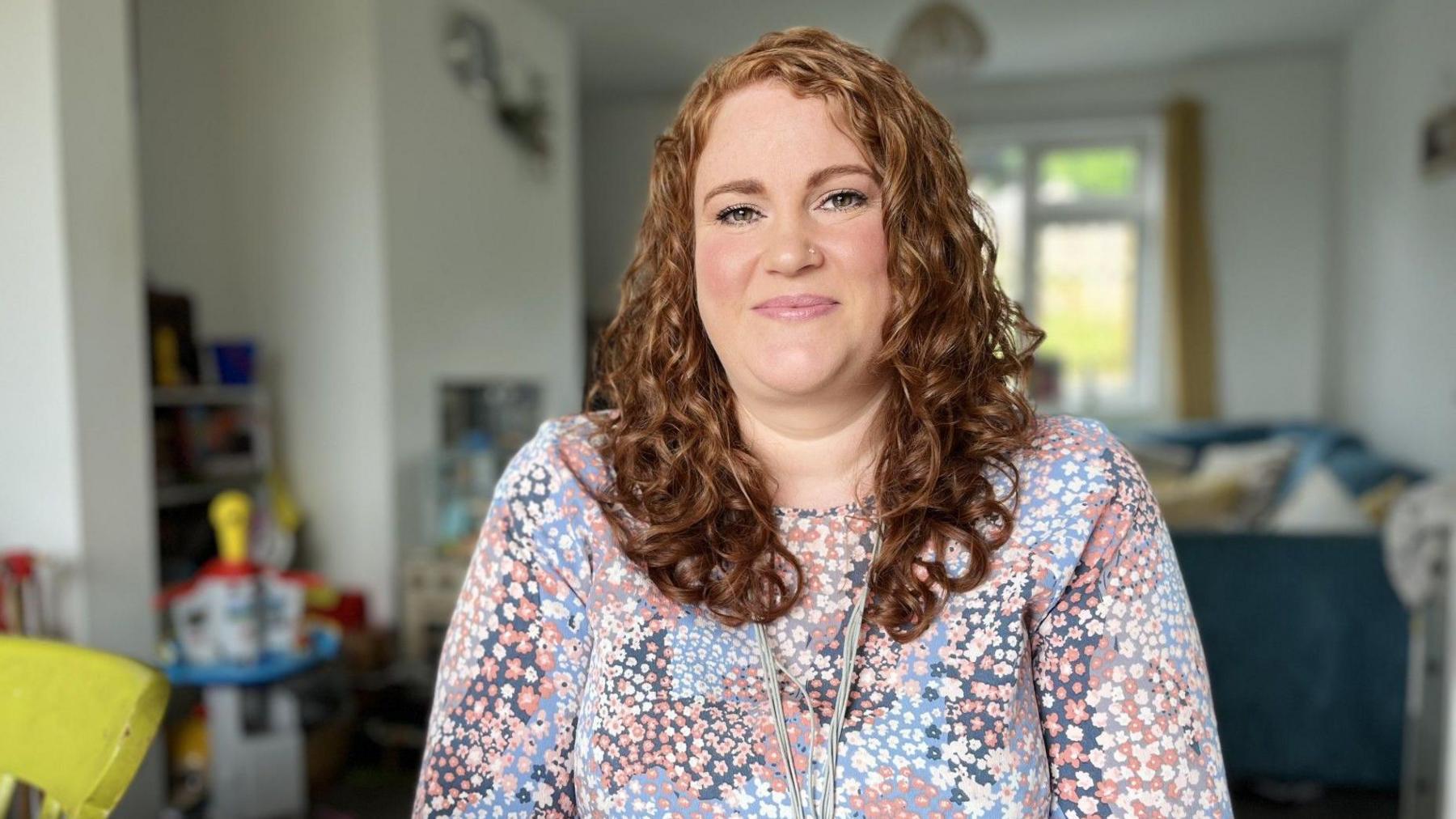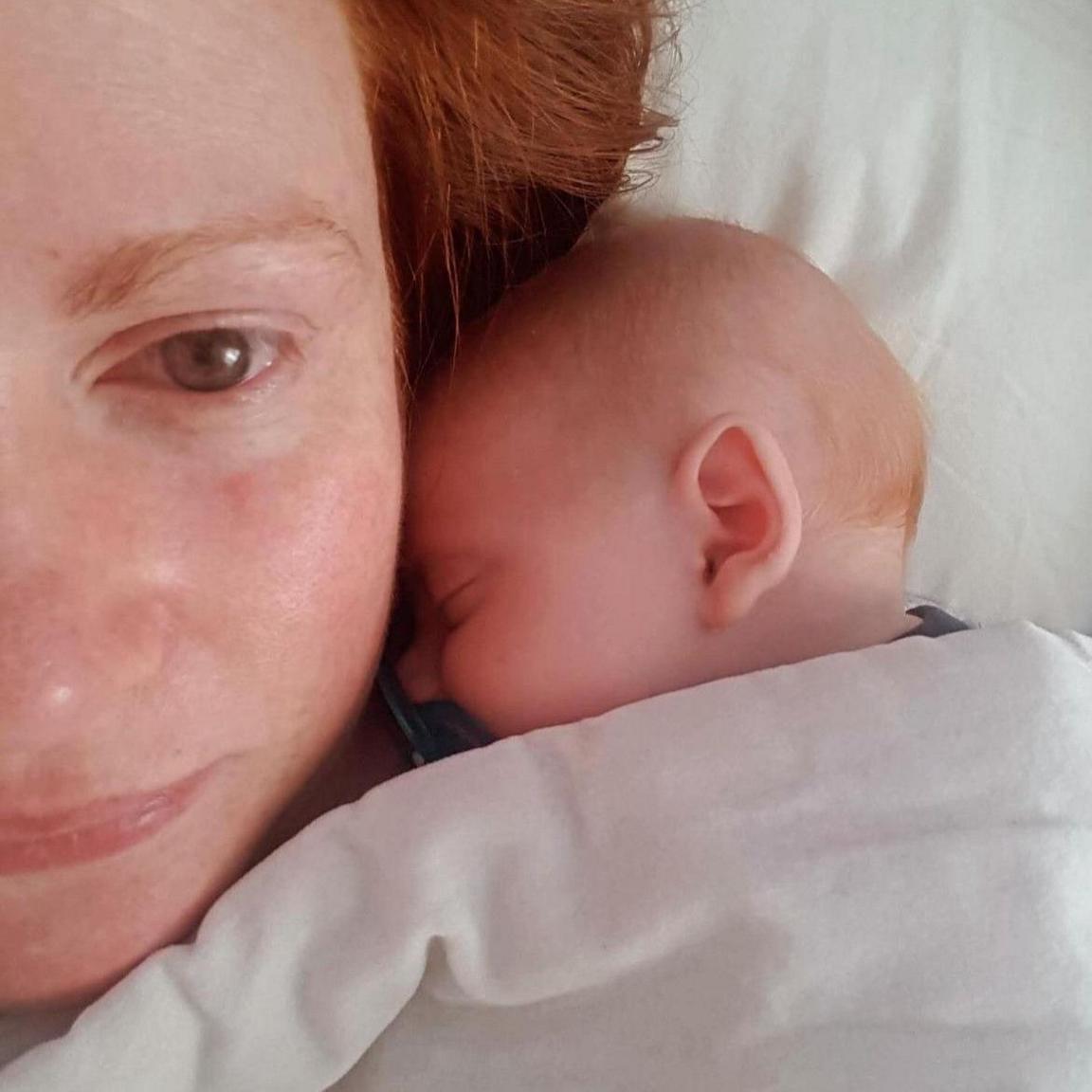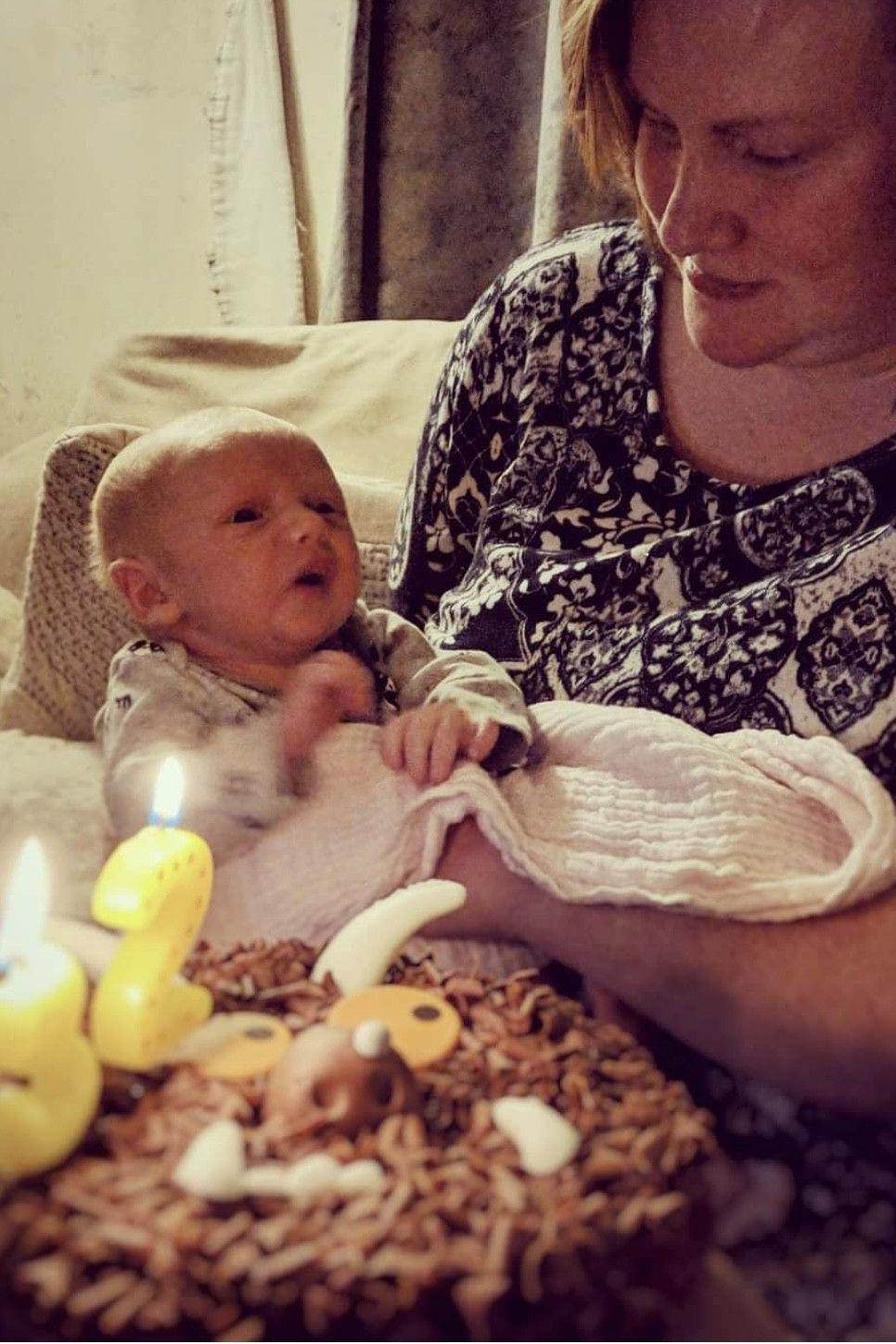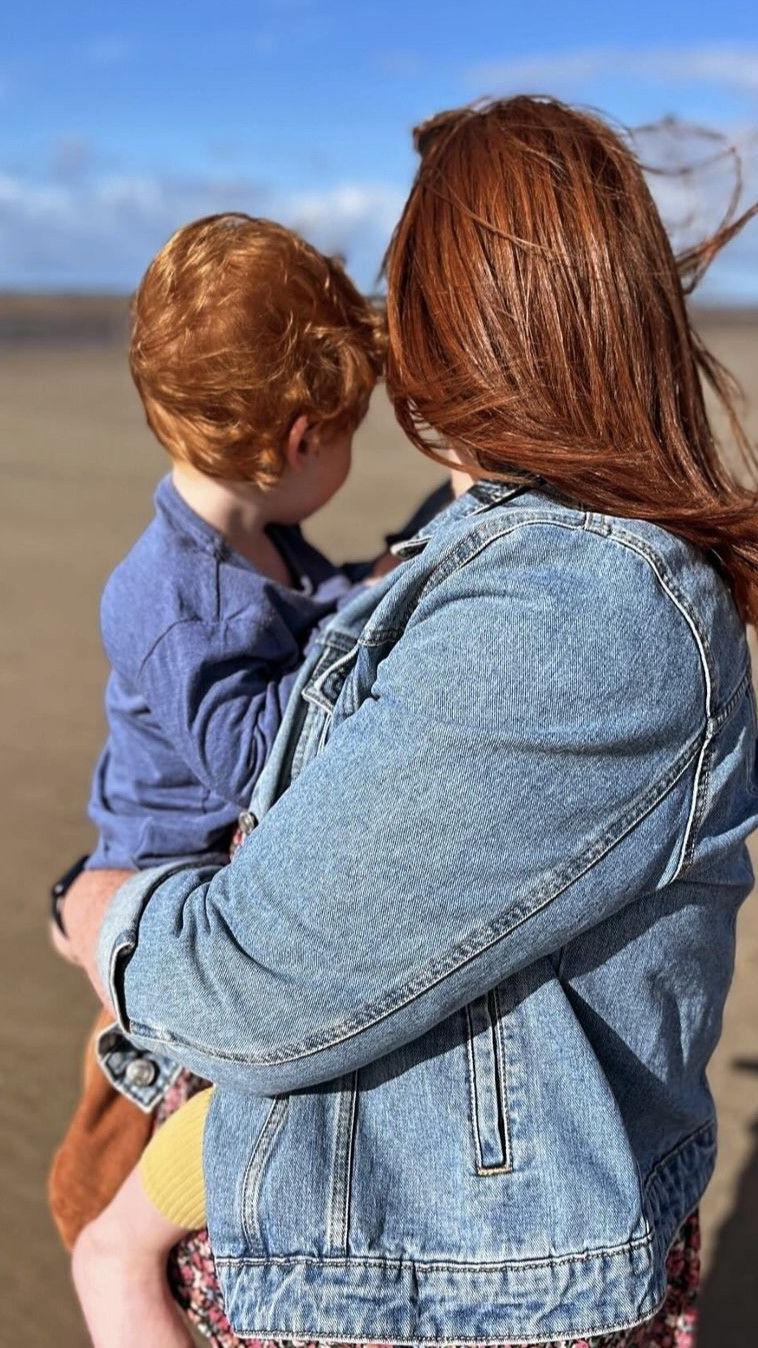Woman left with stoma after traumatic birth

Amy Stead has been awarded more than £500,000 in compensation
- Published
A woman has been awarded more than £500,000 in compensation after childbirth left her with a permanent stoma and post-traumatic stress disorder (PTSD).
Amy Stead, 37, suffered a severe tear while giving birth at the Wrexham Maelor Hospital in 2019, which was not repaired and worsened after she was sent home.
She said women were "bearing the brunt" of pressures on the NHS.
The chief executive of the Betsi Cadwaladr health board said she was "sincerely sorry" that Ms Stead was "so badly let down".
Poor maternity tolerated as normal, inquiry says
- Published13 May 2024
'Horrendous birth experience left me in therapy'
- Published13 May 2024
Maternity unit 'unsafe' for mums and babies
- Published15 December 2023
Ms Stead's tear was missed by an obstetrician who was "rushing to finish" and it was later discovered a hole had opened up between her vagina and rectum.
She went on to have surgery but was left with a permanent stoma and PTSD.
Ms Stead, who also works at the hospital, said it also marred her experience of becoming a mother for the first time.
She said: "Between all of this, I was trying to breastfeed my new born baby. It was just all very overwhelming.
"I wasn't in a very good place, but I was hiding it from my family and from friends.
"I had a good bond with my son, thankfully. But I didn't tell anyone about the things going on in my head."
She said the obstetrician should have carried out a proper investigation into her tear and pressures on the NHS were leading to injuries and deaths in maternity services.
She added there was a theme of women not being listened to and believed.
"Some of them are told it's in your head. I was told I didn't know my own body, when I did," she said.
Ms Stead has recently been awarded £575,000 in damages for the injuries she suffered.

Ms Stead says she is thankful she was able to bond with her son
In a statement apologising to Ms Stead, Carol Shillabeer, chief executive of Betsi Cadwaladr health board, said training for medical and midwifery staff had been improved.
She said: "We recognise that no amount of money can make up for the devastating impact that serious failures in care can have on patients and their families.
"Since this incident, we have adopted an all-Wales quality improvement initiative to ensure that women with obstetric anal sphincter injuries consistently receive safe and effective care."
The Welsh government said it was sorry to hear about Ms Stead's "devastating" experience.
It added: "Safety in maternity care is our key priority and we expect all health boards to implement evidence-based practice and to provide holistic care to women and families."
It said it had also launched a programme in 2022 to improve the safety of maternal and neonatal care in Wales, and a quality statement was being developed to reflect its "determination" to improve these services.

Amy Stead says this picture, taken on her 32nd birthday just after her surgery, reminds her of the terrible pain she was in
Despite her experience, Ms Stead said she was "determined" her experience would not impact her and her husband's plans for a family.
In 2021, the couple welcomed their second son.
Ms Stead had an elective Caesarean due to her stoma and previous injuries.
However, although she wanted more children, she has decided not to put her body through childbirth again, something she said she had come to terms with through therapy.
She has also documented her experience on Instagram, which she said had led to other women coming forward with similar stories.
"I'm not the only one this has happened to. I think that is what is shocking as well."

Ms Stead shares her experiences on social media to help other women
She said she believed maternity services had improved at Wrexham Maelor in the five years since she first gave birth, but said wider change was needed.
"They (maternity services) need to stop dismissing women. They need to start listening and come up with a better aftercare package for them.
"What happened to me should never happen."